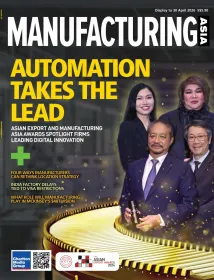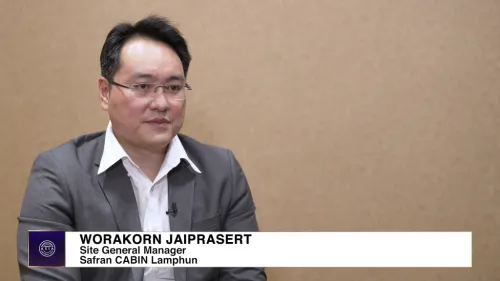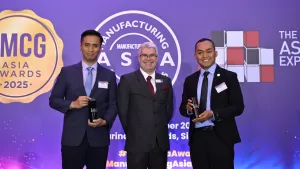
RCEP brings regional trade opportunities for APAC exporters
BDO SG Valuation head shares her insights in trends shaping the export industry.
From being a former corporate finance director at one of the Big Four to being the executive director of BDO Advisory Pte Ltd., Josephine Hong has been sharing her expertise with over 500 clients in more than 10 industries.
So it is no wonder that Josephine was tapped as one of this year’s judges for the Asian Export Awards. As one of the judges, Josephine’s more than 14 years of experience in the Asian market provided a unique insight on who brought home the bacon for the award’s fourth year.
Josephine is a strategic solutions provider, helping clients assess the value of their enterprises and intellectual property. She also performs valuation reviews for various investments held by large sovereign wealth funds and private equity funds.
In Singapore, Josephine has served as a facilitator of the Business Value, Governance, and Risk module of the Singapore Qualification program under the Singapore Accountancy commissions. She has also served as a Senior Adjunct Lecturer for the Singapore University of Social Sciences’ Valuations Module.
In a quick interview with Manufacturing Asia, Josephine shared some of her insights on the export industry and what opportunities exporters and manufacturers may leverage as well as her inputs in this year’s Asian Export Awards.
Which particular markets or sectors are your main focus? Can you share with us your work experience or any backstory that has contributed to your professional career?
I started my career in financial analysis, before joining the corporate advisory team in one of my previous firms, where I had the privilege to be one of the founders of the valuations practice. That was the turning point of my career and I have since expanded my repertoire to include transaction support and mergers and acquisitions (M&A) services and the rest, like they say, is history.
I work with businesses across all sectors including technology, financial services, manufacturing, food and beverage, logistics, healthcare and retail/distribution, and in varying stages of growth. I find it meaningful to contribute to supporting entrepreneurs and businesses achieve their strategic goals, by organic or inorganic growth via M&A, strategic alliances or to monetise their wealth from an eventual exit.
However, my development in this arena was not possible without guidance from my mentors, and the unwavering support from the team. I am also grateful for the relationships forged with my clients and business associates. At BDO, the same philosophy applies where we are committed to building long-term relationships and being the trusted adviser for our clients, to help them navigate the uncertain and ever-changing market conditions.
What are the current trends that are shaping Asia Pacific's export industry?
First, the COVID-19 pandemic has impacted market demands for exports. Whilst the rapid distribution of vaccines in many countries raised trade growth in the first half of 2021, a global spike in cases due to Delta-variant in the second half of 2021, forced many APAC countries to reintroduce lockdown and travel bans, which dampened growth. Going forward, the outlook of the export industry remains dependent on how the pandemic develops.
Supply chain disruptions are another factor. A spike in exports from Asia to the western countries in the first half of 2021 resulted in a global container shortage, thereby pushing up shipping freight rates. The high demand for electronic products also created a global chip shortage expected to persist until 2022.
From the geopolitical front, export has been impacted by trade wars in 2020, between US-China and China-Australia. There is however progress in APAC’s trade liberalisation, with the Regional Comprehensive Economic Partnership (RCEP) signed in November 2020, which potentially is the world’s largest FTA consisting of 15 APAC countries.
Green transition, on the back of rising environmental, social and governance (ESG) awareness, is also an important trend. With climate change and global demand for green commitments, the EU proposed the Carbon Border Adjustment Mechanism or CBAM to impose carbon border taxes, which will impact the costs of exports.
With markets recovering from the crisis, where are the opportunities now for exporters and manufacturers?
COVID-19 has created a shift in work and purchase patterns. With people switching to digital platforms and remote work methods, demand for technological and electronic exports have increased and are expected to remain high in 2022. With the RCEP, which aims to reduce tariffs and protectionist trade policies to promote freer trade and investments in APAC, regional trade could be an opportunity that exporters and manufacturers can leverage on when strategising their trade partners. Lastly, as businesses shift to greener processes, companies can relook at their logistics and shipping routes to minimise environmental impact.
What strategies and innovations can exporters leverage in order to expand their business reach? How can companies expand or develop new export markets?
Given the rise of consumers’ preference for ESG-aligned companies, companies can switch to greener products, services and processes to expand their market reach. Another strategy is to leverage the digitalisation wave. By using digital technologies in their business processes, companies can raise their productivity and quality of products.
As businesses digitise, how can exporters and manufacturers be on board the digital trade era? What should they do to mitigate the risks that come with transformation?
Aside from digitalisation mentioned earlier, businesses can digitise by converting information and documents into a digital format, hence optimising the harnessing of data. Companies can also invest in frontier technologies such as robotics, artificial intelligence (AI), big data, etc and integrate them into their business processes.
Proper planning of the transformation process is imperative for risk management. Businesses should carefully select the most suitable technology, provide their staff with adequate training, and set in place a good governance framework.
The Singapore government has measures to assist businesses in accelerating their digital transformation. Programs like the Enterprise Development Grant (EDG) supports SMEs in upgrading core capabilities and expansion via M&A. As practising management consultants (PMC), BDO can help companies on such EDG funded projects. We have clients who have suffered during the pandemic but were able to re-position and re-strategise to remain resilient. We have advised companies to re-organise and have accompanied them on their journey in getting from the ‘As Is’ position to the ‘Desired’ state.
As a judge in the Asian Export Awards, what key criteria have you considered in selecting the winners?
In selecting the winners, I have considered whether these companies’ products or services are effective, successful and whether they are unique and innovative compared to their competitors. Last but not least, any products or services with an ESG element would definitely get bonus points!
















